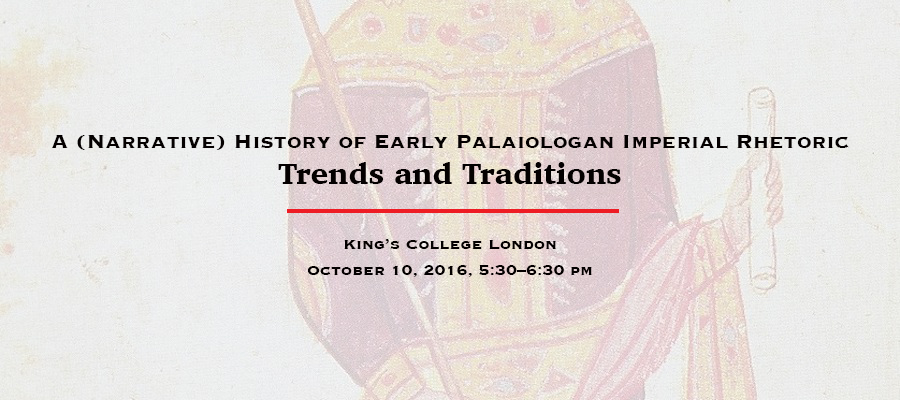A (Narrative) History of Early Palaiologan Imperial Rhetoric: Trends and Traditions, lecture by Ida Toth (Oxford), King’s College London, October 10, 2016, 5:30–6:30 pm
Imperial ideology required effective means of promulgation to reach all strata of Byzantine society, as well as to traverse beyond the borders of Byzantium. It was ever-present, integrated in material culture (visible on coinage, monumental art, illuminated manuscripts, etc.), (re)enacted in rituals (the ceremonial of the imperial court and the Byzantine Church), and expressed in writing (official propagandistic pamphlets, victory bulletins, ceremonial acclamations, official speeches, inscriptions, legislative works, etc.). Belonging to the third group, the imperial oration was a civic genre that celebrated the emperor on behalf of the whole politeia. Using the rhetorical output of the Constantinopolitan orators Manuel/Maximos Holobolos, George/Gregory of Cyprus, Maximos Planoudes and Nikephoros Gregoras as case studies, this paper will examine the composition, context and reception of imperial rhetoric in the first hundred years of the Palaiologan rule.
Ida Toth is Senior Instructor and Lecturer at the History Faculty and Research Fellow at Wolfson College, Oxford, where she teaches Byzantine Greek language and literature and Byzantine epigraphy. Her research interests fall into three distinct fields of Byzantine Studies: fictional literature, rhetoric and epigraphy. She currently works on the Byzantine and medieval Slavonic transmission of Eastern prose fiction, on early Byzantine epigraphy and on the encomiastic oratory of the late Byzantine court.
